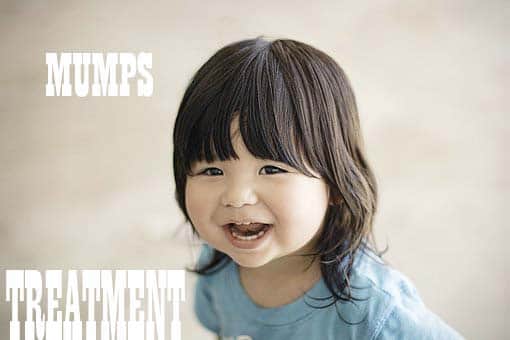What is Mumps?
Mumps is an acute
communicable disease and highly contagious viral infection that has an affinity
for glandular tissue especially salivary/parotid gland in the neck and delivers
hamster face appearance.
An enlargement of one or both the parotid glands will be the top features of the disease. Its conveyance is worldwide but endemic in urban communities of metropolitan areas.
All age groups and both sexes are susceptible and typically children of 05 - 15 years old are more prone to this disease but it is rare in infants below nine months.
An incubation period of this disease is 10 - 21 days (average is just about 10 days after exposure) and period of infectivity are one week before or two weeks after starting point of signs and symptoms.
An enlargement of one or both the parotid glands will be the top features of the disease. Its conveyance is worldwide but endemic in urban communities of metropolitan areas.
All age groups and both sexes are susceptible and typically children of 05 - 15 years old are more prone to this disease but it is rare in infants below nine months.
An incubation period of this disease is 10 - 21 days (average is just about 10 days after exposure) and period of infectivity are one week before or two weeks after starting point of signs and symptoms.
Mumps is generally aggressive during winter and spring months. Nowadays, outbreaks are exceptional due to active immunization with MMR vaccine but can also arise in coming days. About 25% mumps conditions do not demonstrate any manifestations and often goes away on
its own.
One attack offers lifelong protection after a first infection but remembers, a future strike may be possible.
It's regrettable that there is absolutely no any specific approaches or appropriate Allopathic treatment for mumps except vaccination, just symptomatic treatment can be carried out and executed.
Factors behind Mumps
Mumps is specifically
triggered by filterable viral infection of the parotid gland but other risk
factors are also responsible like kissing, laughing, hacking, coughing,
sneezing, sharing the same spoon, plates, dishes, cups, glass, cutlery, bowls, towels, as well as
foods and drinks, from a person already infected or coordinate contact with
infected individuals with mumps and with the aid of these processes, virus may
also move from the respiratory system to the parotid glands and conveys
glandular inflammation.
A poor hygienic condition is another cause of Mumps too.
A poor hygienic condition is another cause of Mumps too.
What Are the Signs &
Symptoms of Mumps?
Fever (100 - 103°F) and
shaking chills.
Body pain, and joint
pain.
Swelling of salivary
glands/parotid glands, neck, face, and near the lower ear/jawbone and
pain/discomfort from the swelling and this causes the person's cheeks to puff
out.
Ear-ache, headache,
nausea/vomiting, and loss of appetite.
Feeling of sickness,
fatigue, and malaise.
Trouble swallowing -
difficult to eat solid food, drinking, and talking.
Sore throats, dry mouth
and a sour taste in the mouth.
Complications of Mumps
Mumps can cause some
complications and the most common are next -
Oophoritis - Swelling of
ovaries.
Orchitis - Swelling of
testicles.
Viral
meningitis/inflammation of the lining of the brain and spinal cord/stiffness of
the neck.
Pancreatitis -
Inflammation of pancreas.
Miscarriage in the first
12-16 weeks of pregnancy.
Deafness - Hearing loss.
Encephalitis/inflammation
of the brain.
Convulsions/seizures,
unconsciousness.
Extreme drowsiness,
confusion, or disorientation.
A severe headache.
Sometimes abdominal pain
due to swelling of pancreas, ovaries, and appendicitis if the right testicle is
affected.
Hyperpyrexia - Fever of
103°F or greater.
How is Mumps handled?
Diet regimen, Lifestyle and home remedies for mumps
Try to get adequate bed
rest and sleep until the fever leaves completely.
In case you suspect
mumps, constantly cross for medical advice.
Gargle with lukewarm
salted water might be helpful in the case of parotitis.
Cold therapy -
Start using a cold compress with ice packs on the swollen area to alleviate the pain. Other than this, hot fomentation or heat packs have an incentive to relieve the inflammation and pain of mumps.
Food and Nutrition -
Try to keep your daily diet light and steer clear of such hard-to-digest foods in case you suffer from mumps.
A well balanced diet that should be highly enriched in nutrients to be taken.
Eat very soft foods like soup and broth-based foods,
particularly (chicken or vegetable soup),
cantaloupe/kharabooja, leafy greens, mangoes, vegetable
juice, non-citric fruit juice, runny and well cooked oatmeal,
mashed potato/creamy potatoes, rice porridge/chaaval ka
daliya, fruits, cheese, ginger, beans, black pepper, drink
plenty of fluids/water as chewing might be painful.
Foods to be avoided -
Processed foods, oily foods/fatty foods, sour foods, sugary foods, hard to chew up foods, meat, beef, citrus foods etc.
Stay away from citrus
fruits juice, which stimulates excessive salivation that has a tendency to
aggravate symptoms of mumps.
Proper hand washing with
herbal hand wash and normal water is recommended to stop further get spread
around of infection.
Before coughing or
sneezing, make use of handkerchief and cover the nasal and oral areas with it.
To help ease pain and
swelling of the parotid gland, one can utilize an anti-inflammatory or
analgesic drugs like
acetaminophen/paracetamol, ibuprofen etc. Aspirin is a much better
avoidable drug, because it may deliver Reye's syndrome, which can be either
serious or life-threatening due to liver failure. Antibiotics haven't any value
regarding mumps management or control.
Do no longer ignore, if
you suffer from mumps with oophoritis/swelling of ovaries or orchitis/swelling
of testicles otherwise it could lead to infertility.
Isolation is important
to prevent distributing the infection to others.
How does Mumps Be Prevented & Averted?
Preventing the spread of
mumps -
An active immunization with MMR vaccine (measles-mumps-rubella) is the most practical method for preventing mumps.
Children should be vaccinated at 9-15 months of age and booster dose may be followed at 4-6 years of age.
Non-immunized adults during childhood are at risk of catch-up infection of mumps virus so vaccination may also be encouraged for an unimmunized adult at any age.
The MMR vaccine also defends the body against rubella and measles and utilized for joint prevention of Measles, Mumps and Rubella viruses.
An active immunization with MMR vaccine (measles-mumps-rubella) is the most practical method for preventing mumps.
Children should be vaccinated at 9-15 months of age and booster dose may be followed at 4-6 years of age.
Non-immunized adults during childhood are at risk of catch-up infection of mumps virus so vaccination may also be encouraged for an unimmunized adult at any age.
The MMR vaccine also defends the body against rubella and measles and utilized for joint prevention of Measles, Mumps and Rubella viruses.
However,
contraindications and special precaution should be implemented and individuals
are not advised to really have the MMR vaccine if -
A patient with
congenital or acquired immune deficiency and sensitive to immune-globulins,
neomycin, gelatin, and egg proteins and during pregnancy period
.
Side effects of MMR
vaccine are - hypethermia, respiratory system problems, convulsion,
lymphadenopathy, discreet exanthema etc. may be viewed.
Herbal & Ayurvedic
Home Remedies For Mumps
Carrot - Daucus carota
Wild indigo/ blue false
indigo - Baptisia australis
Chandan - Sandalwood -
Santalum album
Gendaphool - Marigold -
Tagetes erecta.
Kapikachu - Velvet bean - Mucuna pruriens
Ginkgo - Maidenhair tree
- Ginkgo biloba
Pitpapra - Diamond
flower - Oldenlandia corymbosa
Nimboo - Lemon - Citrus
limon
White clover/Dutch
clover - Trifolium repens
Phaphra - Buckwheat -
Fagopyrum esculentum
Bodhi tree - Sacred fig
- Ficus religiosa
Bayberry - Sweet Gale -
Myrica Cerifera
Satavari/shatamull -
Asparagus recemosus
Govindphal/Vyaghranakhi - Capparis zeylanica
Elemi - Java Almond -
Canarium luzonicum
Lime - Key lime - Citrus
aurantiifolia
Irish moss/Pearl Moss -
Chondrus crispus
Chamomile - Scented
mayweed - Matricaria chamomilla
Rosewood/Indian Rosewood
- Dalbergia sissoo
Asparagus seeds - Garden Asparagus - Asparagus officinalis
Ink fruit - Chebulic Myroblan/Terminalia
chebula
Methika - Fenugreek
seeds - Trigonella foenum
Grape - Common Grape
Vine - Vitis vinifera
Sathra - Marjoram -
Origanum majorana
Indian Strawberry -
Potentilla indica/Duchesnea indica
Baragad - Banyan leaves
- Ficus benghalensis
Elderberry - Tapiro -
Sambucus nigra
Echinacea - Purple
coneflower - Echinacea purpurea
English marigold -
Calendula - Calendula officinalis
Astragalus root - yellow leader - Astragalus propinquus
Jaitun - Olive leaf -
Olea europaea
WRITTEN BY RAJESH KUMAAR














No comments:
Post a Comment